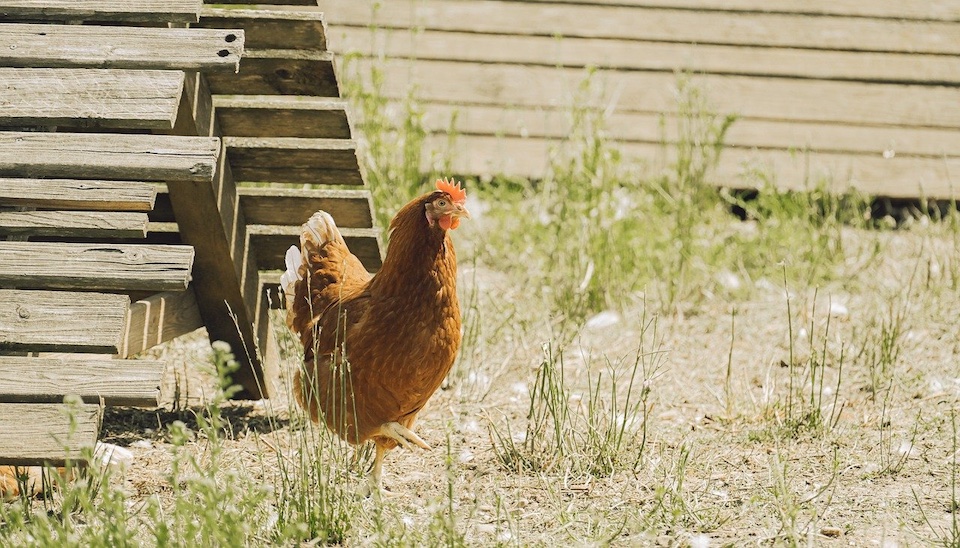Rats in the Coop? Here's What You Need to Do
Rats In The Coop? Here's What You Need To Do
Rats in your chicken coop can quickly turn into a major problem, stealing feed, spreading disease, and even harming your chickens.
If you’ve noticed droppings, chewed holes, or disappearing food, it’s time to act.
To get rid of rats in the chicken coop, start by cutting off their food and water sources, secure your coop with sturdy wire mesh, and use proven methods like bait stations to eliminate them.
A rat-proof chicken feeder like the Dine-A-Chook feeder will reduce waste and keep rodents away, while Lubing cups or nipples minimise water spillage that attracts pests. Follow these steps to stop rats in their tracks and protect your chickens.
Key Steps to Get Rid of Rats in Your Chicken Coop:
- Use a rat-proof chicken feeder like the Dine-A-Chook feeder to reduce feed waste and prevent rats from being attracted to your coop.
- Prevent water spillage by switching to Lubing cups or nipples instead of open water troughs.
- Remove uneaten scraps and secure feed bags in a galvanised steel bin to eliminate food sources for rats.
- Check for signs like droppings, chewed holes, and disappearing feed, then visit the coop at night with a torch to confirm rat activity.
- Stop rats from entering your coop by reinforcing it with small gauge wire and repairing holes or gaps.
- For severe infestations, use rat bait stations or Ratshot rat poison and dispose of carcasses safely.
- Regularly clean your coop with Virkon S disinfectant and treat for parasites using David Grays Poultry Dust.
Why You Don't Want Rodents In The Coop:
- Rats and pests carry diseases
- Rodents prey on chicks
- Pests create a stressful environment for your chickens
- Faecal matter and urine from rats will contaminate your chickens' feed and water with bacteria
It is vital for your chickens' health to ensure rodents are not in your chicken coop. The diseases that they can carry can also be potentially dangerous to humans with a compromised immune system, such as pregnant women, the elderly, young children or people undertaking chemotherapy.
Rodents will poop and urinate everywhere, not discriminating between feed, water, bedding or grass. Putting aside illnesses, they may also harbour lice and parasites which are unwelcome in any coop. Even the fleas from rats can carry diseases.
It is important to always be on the watch for rats before you end up with a large infestation.
How To Know You Have Rats In And Around The Chicken Coop
At the slightest sound, a rat can scurry off into a hiding place so that even while you may have an infestation, you may never see a rat. However, the rat cannot help but leave telltale clues of its visit.
Clues You Have A Rat Problem:
- Food disappearing overnight
- Scratches in and around the chicken coop
- Chewed holes in netting or in the timber
- Rat droppings
- Strong-smelling urine
- You may hear scratching in the night
- Chickens seem unusually stressed
- Eaten eggs
- Dead or injured chickens
- Holes in the chicken feed bags or containers
- Missing chicks
If you suspect a rat problem, visiting the coop at night with a torch will usually reveal the intruders!
How To Prevent Rats
One thing is for certain, rats have an excellent sense of smell. If your coop is seen as a regular food source, rats will come from afar and set up camp to eat and breed. In order to not attract rodents and mice, you should not advertise that you have an unlimited food and water supply in your backyard. Chicken feed and scraps - particularly wet feed - will give off a strong odour, attracting rats and mice from a distance.
Prevent rats and mice using these methods:
- Use a chicken feeder that does not get wet, nor does it encourage the chickens to stand in the feed or spread the feed around the coop. A waste-reducing feeder like a Dine-A-Chook feeder will do the trick. You should also position the feeder above the ground for added deterrence.
- If rats and mice are a risk, remove the feeder from the coop every evening and store away from rodents.
- Avoid regularly feeding your chickens kitchen scraps. Scraps left on the ground are a smorgasbord for rats and pests, so if you do feed scraps always collect any uneaten food.
- Do not put the compost bin in the chicken run, and ensure your compost has sufficient carbon.
- Keep feed bags in a secure container. Rats will quickly gnaw through bags and plastic with their sharp teeth. Use a metal galvanised steel bin to stop rats accessing feed bags.
- Remove the water source. We prefer to use Lubing cups or nipples to provide hydration for chickens. Unlike a water trough, this provides minimal spillage (less attractive odours) and is not inviting to rodents.
- Use a small gauge wire, like mouse wire or aviary wire (hardware cloth in the USA). A solid mesh in a small gauge will help stop rats from entering the coop.
- Collect eggs daily. A roll-away design nesting box makes collecting eggs easier.
- Keep the grass around the coop cut at all times.
How To Deal With A Rat Infestation
So, you've discovered a pesky rat problem in and around your coop. Dealing with a rodent infestation will take a three-pronged approach.
- Cut off the food and water supply. Stop putting out scraps and get rid of the compost bin. Remove the water and feed supply of an evening.
- Put Out Rat Bait Stations. Be sure to monitor in and around the coop for dead rats. If you do have to dispose of a rat carcass, do not touch the body. Instead, use a shovel to pick it up, bag and bin it. We recommend Ratshot rat poison as it is lower in toxicity to non-target animals compared to other rodenticides.
- Cut Off Shelter: Add a small gauge sturdy wire mesh around the coop. Patch up any holes in timber with mesh.
Also, it is a good time to treat your chickens for parasites, fleas and lice as rats can introduce these into the coop.
How To Clean Up Rat Poop
Rat droppings and urine potentially carry harmful bacteria. It is important to make sure these are cleaned out of the coop to prevent infection within the chicken flock or to their human carers.
You will need:
- A mask
- Gloves
- Disinfectant
- Bucket
- Scrubbing brush
- Shovel
- Soap and hot water
- David Grays Poultry Dust Insecticide
Once you have discovered an infestation, you will need to give the chicken coop a big clear out. It is time to don your gloves and mask to shovel out any bedding straight into the bin. Sweep out the coop.
After the coop has been cleared out, it is time to thoroughly disinfect. Virkon S Disinfectant is designed specifically for use around farm animals, but we still recommend you remove your hens from the coop while misting. Using a large size scrubbing brush to clean the walls and floors will have the cleaning job over and done with very quickly.
Once clean, rinsed and dried you should add some poultry dust to the nooks and crannies, and most importantly the nesting boxes.
This will ensure there are no parasites remaining in the coop.
I hope these tips help you with your rat problems!




